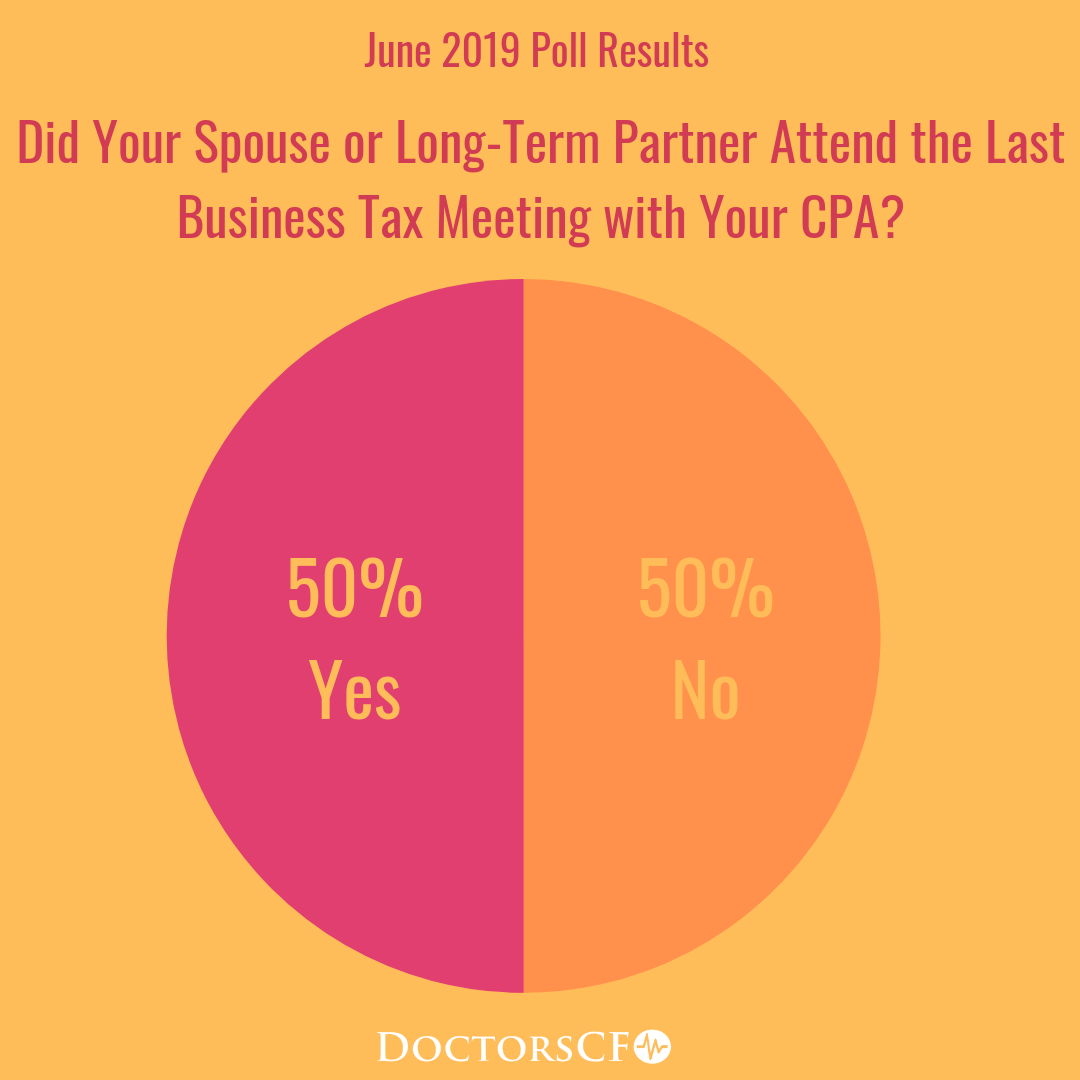Our last few blogs have focused on what a spouse or trusted long term partner of a practice owner should know in case of an event that would force them to take over the practice for a short amount of time or indefinitely. We went over the things that the practice CFO and CPA would expect them to know in case of serious injury, illness or death of a practice owner.
Our poll asked ‘Did your spouse attend the last business tax meeting with your CPA?’ Fifty percent of respondents said ‘Yes’ and 50% said ‘No’. We recommend that the spouse attend tax meetings, be familiar with tax valuations, know how to track the cost of overhead, be able to locate previous years tax forms, know the locations of stock investment accounts, have a list of charitable deductions, know the taxpayer identification number, and keep up on relationships with other practitioners. With this knowledge, they will be prepared should something incapacitating happen to the practice owner.

In this article, we would like to suggest an approach to help you manage your employees when they say “you are treating me different.” Or you might hear it said this way, “You are not treating me fair” or “You are not treating me the same.” The answer is “of course I am treating you different, because everyone is different.” However, generally that explanation doesn’t sell well, so here is a model to help explain it.
Mary and Amy are both great medical assistants. Mary is great at setting up the room but needs improvement on her exam notes. Conversely, Amy is great at exam notes but struggles at setting up the room. In the example below, the line represents the standard. You are asking Mary to move right to line up to the standard and you are asking Amy to move left to line up. In short, you are treating them different because the standard requires it. Though simple, this illustration works well in all situations where a standard is present. If there isn’t a standard or protocol, then it’s important to create one.

To participate in our poll, “Do You Have Written Standards / Protocols for Your Critical Processes?”
The reason we are publishing these articles is so that your office can increase its success. We appreciate your feedback on how we can help you more and love it when you pass these articles along to other practice owners and office managers.
Developing a management report is not easy and Doctors CFO currently has a robust model for most practice types that is customized for our monthly and bi-monthly clients. If you have questions on how this model applies to your practice or you are interested in applying the Doctors CFO model in your practice, via one of our annual, bi-monthly or monthly assessments, please contact us.
(c) 2019 Doctors CFO, All Rights Reserved



Recent Comments